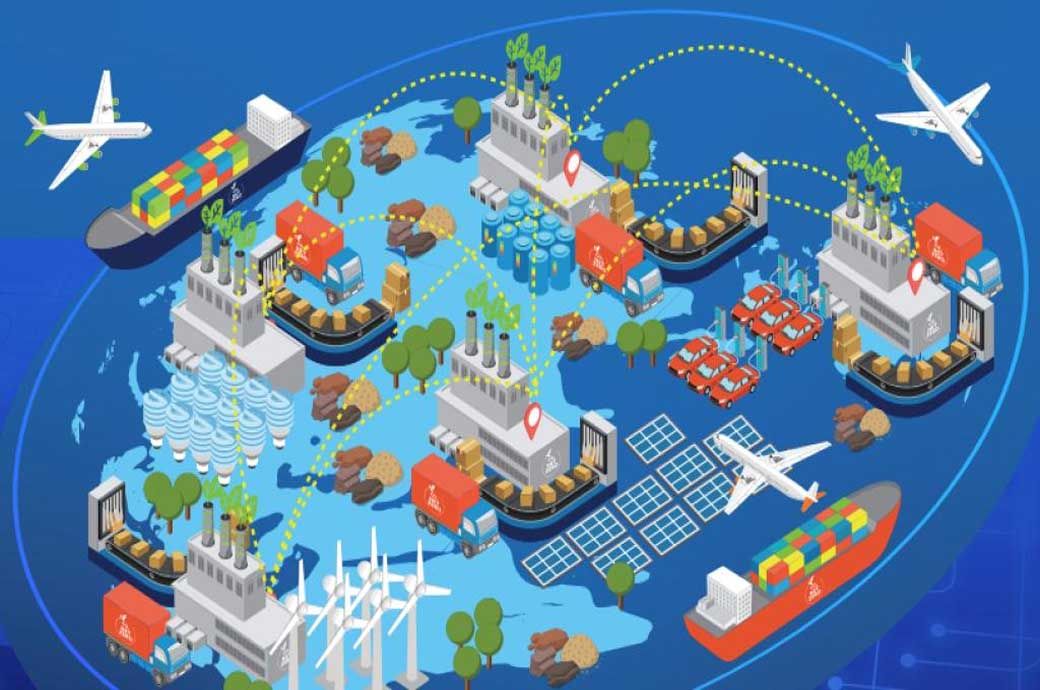EU carbon tariff to have limited impact on climate change: ADB report

Insights
- The Asian Development Bank (ADB) predicts the EU's Carbon Border Adjustment Mechanism (CBAM) to have minimal global emissions impact, mainly affecting Asian exports to the EU.
- To curb carbon leakage, ADB urges broader carbon pricing initiatives, especially in Asia.
- It recommends policies promoting trade in eco-friendly goods, and green investments.
The EU’s Carbon Border Adjustment Mechanism (CBAM), set to go into force in 2026, will impose import charges on products such as steel, cement, and electricity, based on the carbon dioxide emissions embedded in their production. The charges are aimed at curbing ‘carbon leakage’, the result of polluters moving production from countries with stringent regulations or high carbon prices to those with less stringent regulations or lower prices.
However, CBAM is likely to reduce global carbon emissions by less than 0.2 per cent relative to an emissions trading scheme with a carbon price of €100 ($108) per metric ton and no carbon tariff, statistical modelling shows. At the same time, the charges may reduce global exports to the EU by around 0.4 per cent and Asia’s exports to the EU by around 1.1 per cent, while negatively affecting the output of some manufacturers within the EU, according to the Asian Economic Integration Report (AEIR) 2024.
“The fragmented nature of carbon pricing initiatives in terms of sectors and regions covered, including CBAM, can only partially limit carbon leakage,” said ADB chief economist Albert Park. “To significantly reduce carbon emissions globally, while also making sure climate efforts are more effective and sustainable, carbon pricing initiatives need to be extended to other regions outside the EU, especially Asia.”
Asian subregions with higher shares of carbon-intensive exports to Europe, particularly Central and West Asia, would be more negatively affected by CBAM and the EU’s emissions trading system. Given the expected distributional impacts, especially on developing economies in Asia, proper incentive mechanisms are necessary to encourage widespread adoption of carbon pricing, according to the report.
The report also recommends measures to decarbonise international trade and global value chains. Carbon emissions from these sources are rising faster than from other sources—and they are growing faster in Asia than in other regions. Among the recommendations are implementing targeted policies that encourage trade in climate-friendly products and services; supporting environmental regulations and standards; facilitating the transfer of green technologies; and supporting governments and international institutions in promoting green infrastructure and investments. The report further calls for global cooperation to develop universally accepted accounting frameworks that can effectively track emissions embedded in products and services.
Among its other key findings, AEIR 2024 shows that despite concerns about the risk of global fragmentation, global value chains in Asia have recovered well following the COVID-19 pandemic. While regionalisation of global value chains has progressed in recent years in Asia, the report finds no clear signs that ‘reshoring’ is gaining traction in Asia or globally.
ADB is committed to achieving a prosperous, inclusive, resilient, and sustainable Asia and the Pacific, while sustaining its efforts to eradicate extreme poverty. Established in 1966, it is owned by 68 members—49 from the region.
Fibre2Fashion News Desk (RR)
































-Ltd..jpg?tr=w-120,h-60,c-at_max,cm-pad_resize,bg-ffffff)





.jpg?tr=w-120,h-60,c-at_max,cm-pad_resize,bg-ffffff)
.jpg?tr=w-120,h-60,c-at_max,cm-pad_resize,bg-ffffff)






